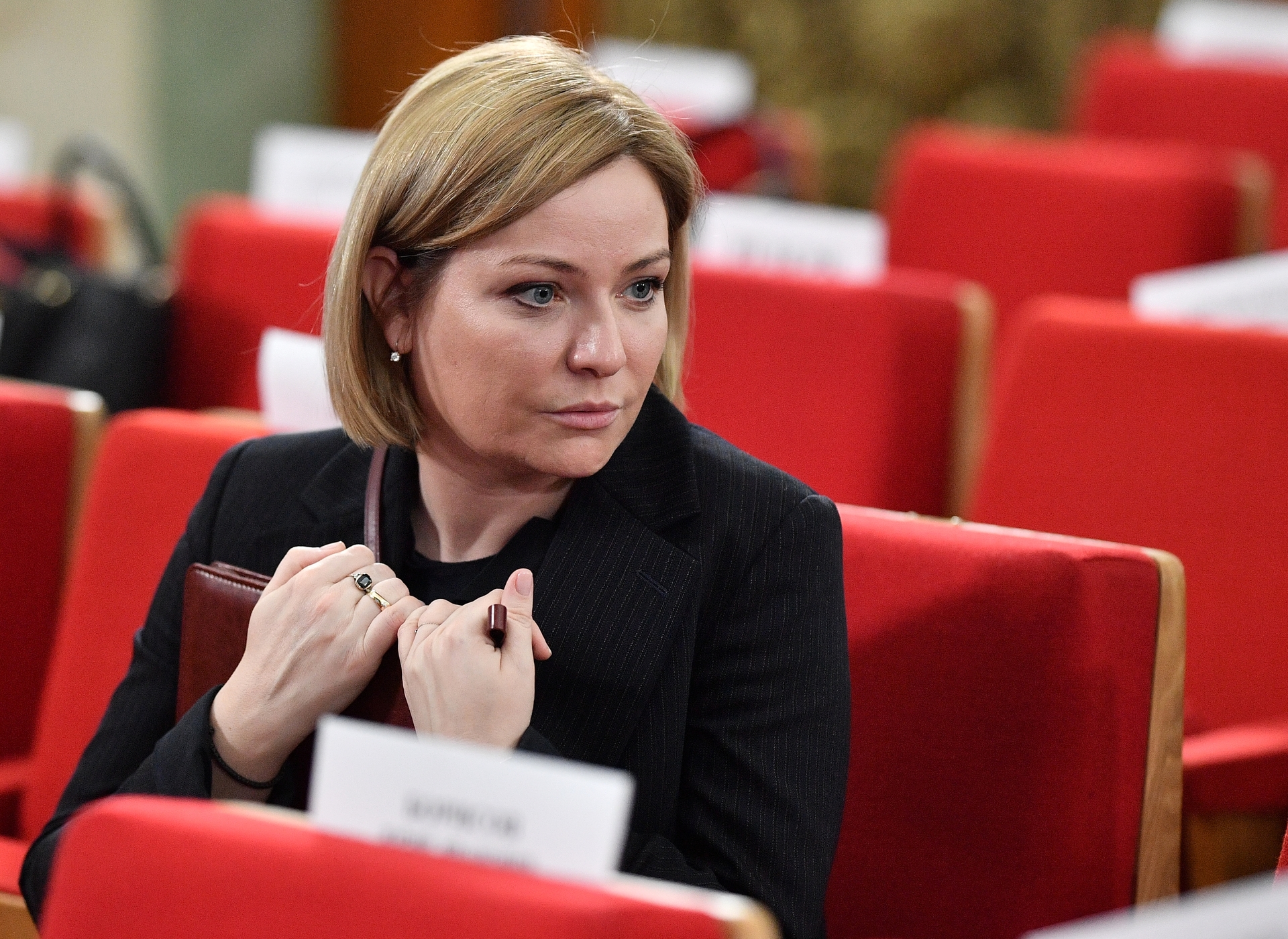Elena Yampolskaya, Chair of the Russian State Duma Committee on Culture, commented on the draft law “On Amendments to the Federal Law“ On State Support of Cinematography of the Russian Federation ”, which was previously described by the Minister of Culture of Russia Olga Lyubimova. On July 22, the head of the department noted that the document proposes, in particular, to ban any filming of movie fragments in cinemas. Violators, according to her, face fines ranging from 50 thousand to 100 thousand rubles.
“The size of the fines, of course, will still be discussed, but on the whole I warmly welcome such an initiative,” Yampolskaya said on her Facebook page.
However, she suggested that passing the bill "is unlikely to be easy."
Earlier, Lyubimova noted that the preparation of innovations is carried out in cooperation with the owners of the sites. "This is also very serious our constant joint work, including with the association of our domestic film networks," - quotes the Minister of TASS.
“This is not just a ban on any filming, we are used to these warnings before every film. People who come to cinemas should understand that even playing with phones can end up in fines of 50 and up to 100 thousand rubles, because if you shoot a fragment, shoot yourself in some kind of video, then this is also your shooting inside the cinema , especially when the film is on, ”Olga Lyubimova emphasized.
Representatives of the Ministry of Culture clarified that the administrative fine for filming in a cinema will be 50 thousand rubles, and the amount of 100 thousand rubles will have to be paid for a repeated offense. The amount of fines is proposed to be fixed in the Code of Administrative Offenses (CAO).
According to the "Bulletin of the Kinoprokatchik", the draft law will soon be published for public discussion on the federal portal of draft regulatory legal acts.
In addition, Lyubimova told how the process of returning cinemas to work after the lifting of the bans imposed due to the coronavirus pandemic will proceed. According to the minister, retrospectives and re-rentals of box office tapes will be organized. As for the premieres, as the head of the department noted, preference will be given to "light and simple films", since viewers "may not be ready for heavy dramas" after the restrictions due to the coronavirus pandemic.
“We will get acquainted with the dramas closer to the winter of 2021,” Lyubimova said.
- Minister of Culture of Russia Olga Lyubimova
- RIA News
- © Vladimir Astapkovich
"Pirate Hydra"
According to the report of the information security company Group-IB, published in July, in 2019 the Russian video piracy market dropped significantly for the first time in five years: its volume amounted to $ 63.5 million. At the end of 2018, the figure was $ 87 million. Such results are the authors of the study. associated with the closure of the largest video players Moonwalk and HDGO, through which a significant part of the content of Russian pirate online cinemas was broadcast.
However, new platforms are currently emerging and the market is returning to its previous performance. This is due to the fact that the problem of piracy in the country is more complex, and it is impossible to solve it by closing certain sites.
“Removing one of the components of a pirate hydra won't kill her - she regenerates. This means that the war must be waged on all fronts, ”experts say.
In addition to posting illegal content, many pirate sites distribute malware and steal money and personal data from users. Among the 3,100 pirate sites that Group-IB checked during the pandemic, 6% were found to be safe, 71% considered "relatively safe." Malware and other threats were detected at 23% of sites checked.
In July 2020, within the framework of the round table “Reducing the availability of pirated content - challenges of 2020” at the RIF 2020 conference, the results of the anti-piracy memorandum, which the copyright holders signed in 2018, were discussed.
In a year and a half, the number of unique users of pirate sites has decreased by 46%. Legal resources were visited by 30% more users.
According to Roskomnadzor, over the period from 2013 to 2018, more than 116 thousand sites or individual pages were considered for the content of illegal content. Most of the platform owners removed pirated materials at the request of the Moscow City Court. More than 5 thousand sites were blocked, 1194 of which - forever. In addition, in 2017, Roskomnadzor, by decision of the Ministry of Telecom and Mass Communications, began to restrict access to "mirrors" of pirate sites. Almost 2,500 such resources were blocked during the year.

